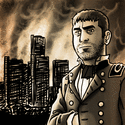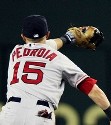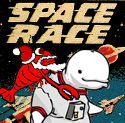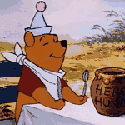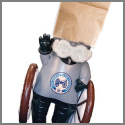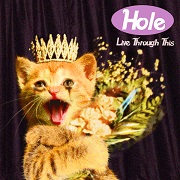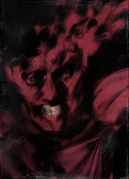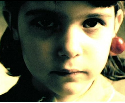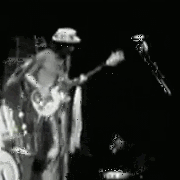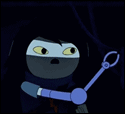|
Mr Crucial posted:It's horribly sentimental, as are most of Ambrose's books. D-Day is okay, but Citizen Soldiers is pretty bad because it struggles to reconcile his obvious heroification of the American soldier with the fact that the US Army performed pretty terribly in Europe (outside of elite troops like the Rangers and Airborne). Eisenhower's Lieutenants by Russell Weigley is also a pretty good treatment of the Allied campaign in Northwestern Europe that lacks the Greatest Generation sentimentality of Ambrose's works on the subject.
|
|
|
|

|
| # ? Apr 18, 2024 10:46 |
|
Currently reading The Guns of August. I've been on a non-fiction bender lately. But I think the next thing I'm looking for is a good book on Vichy France. Or just France during World War II. Can anyone suggest anything? I think what caught my attention was some of the scenes from the World at War, narrated by Laurence Olivier (highly recommended btw).
|
|
|
|
To Lose a Battle by Alistair Horne is a pretty comprehensive, if old fashioned (concentrates a LOT on the 1940 campaign for the second half, obviously, but the first half is fantastic) discussion of the fall of France. I'd also recommend his book on the 1870-71 Franco-Prussian War (Fall of Paris) and his examination of 1917 Verdun (The Price of Glory) Essentially, they make up his "triumvirate" of modern French histories. Problem is he was writing these in the 1960s so he wasn't quite far enough away from Vichy to fully analyze it.
|
|
|
|
Amaterasu posted:Currently reading The Guns of August. I've been on a non-fiction bender lately. The Collapse of the Third Republic by William L Shirer is not as well known as Horne's book but I though it was superior in many respects. It has been a few years since I read it but it makes a convincing argument that French collapse occurred not only a result of military failure but as a political collapse caused by societal trends running all the way to the way the French Third Republic came into being after the Franco-Prussian War. It's over a thousand pages long but Shirer is a journalist so it is pretty readable. Like the Horne book it is a bit dated but still quite good. No ebook or audio version as far as I am aware though. For the person who asked earlier, Shattered Sword is the best book on Midway I've ever read, although as noted it does tend to downplay the risks the americans were running this is largely due to the focus on the Japanese perspective. I'd also recommend The Battle of Midway by Craig Symonds if you are looking for something recent with more emphasis on the American side. I was wondering if anyone had any recommendations for either 16-17th European history (basically anything pre-Napoleonic, since I think I hit most of the high points for that era) or for the Cold War?
|
|
|
|
Mr Crucial posted:It's horribly sentimental, as are most of Ambrose's books. D-Day is okay, but Citizen Soldiers is pretty bad because it struggles to reconcile his obvious heroification of the American soldier with the fact that the US Army performed pretty terribly in Europe (outside of elite troops like the Rangers and Airborne).
|
|
|
|
I'm reading through Robert Services biographies of Stalin, Lenin and Trotsky. The Stalin one was a very good read. Seems like a balanced account of Stalin's life. I can recommend it if you are looking for a biography on Stalin. About 100 pages in to the Lenin book now. Has anyone read Comrades: A World History of Communism? I'm thinking of adding a fourth Service book to my rapidly expanding book collection.
|
|
|
|
DeceasedHorse posted:I am curious as to why you would assert the US Army performed 'terribly' during the same war? Please note I agree with you that Band of Brothers isn't exactly a deep historical work. The us army had its problems: The Sherman tank was rather badly outclassed by 44 (although not as badly as is sometimes portrayed-it was certainly comparable to the late model long barrel panzer 4s that made up roughly half the strength of the panzerwaffe) and that the system of introducing replacement soldiers to combat divisions was flawed (particularly when combined with a shortage of replacement caused by assigning low priority for the infantry) but It is my impression that the army performed credibly after the Normandy breakout one the logistical limitations imposed by the nature on and intercontinental limitation are taken into consideration. I'd be interested in hearing your thoughts on the matter however. Ya I wouldn't agree with the assertion that the US Army performed terribly either. Especially if you consider it in relative terms with the performances of the other Allies. I mean look at France and even the UK (Market Garden, Italy, the first half of North Africa -- basically Monty sucked). The US Army in a lot of ways, especially on a small unit level, was a new institution that made it up as it went along and did pretty drat well considering.
|
|
|
|
Achtung! Panzer posted:I'm reading through Robert Services biographies of Stalin, Lenin and Trotsky. The Stalin one was a very good read. Seems like a balanced account of Stalin's life. I can recommend it if you are looking for a biography on Stalin. About 100 pages in to the Lenin book now. I would highly recommend The Whisperers: Private Life in Stalin's Russia if you are interested in Soviet society during Stalin's reign. Very disturbing and mesmerizing stuff. http://www.amazon.com/The-Whisperers-Private-Stalins-Russia/dp/0312428030
|
|
|
|
I am now reading Archie Brown: Rise and Fall of Communism which to me and also according to Amazon reviews seems a really good alternative for people looking for a short(ish) and decent introduction to history of communism. I also have e.g. Service's Lenin which I am hoping to read at least before the end of the year. Too many books to read and too few hours in a day...
|
|
|
|
On the subject of Alastair Horne, I really liked A Savage War of Peace. It's about the French war in Algeria and the downfall of the Fourth Republic. It was probably written a bit too close to the events (1977) and definitely spends a lot of time drawing parallels to the Troubles in Ireland, but it's still very informative.
|
|
|
|
DeceasedHorse posted:I am curious as to why you would assert the US Army performed 'terribly' during the same war? The general idea is that the US Army (as well as the British and Canadians) was far too reliant on firepower, and didn't push their soldiers hard enough early on to make big enough gains that would crush the Wehrmacht in France, rather than allowing them to escape to the Siegfried line. An example would include failing to close the Falaise gap or a wider envelopment Too many junior officers wanted excessive artillery barrages or air support, and they were not willing to push their soldiers onwards into the teeth of defensive fire, with the result that troops hunkered down, attacks faltered, and ultimately more casualties were taken because of the slowness of the advance. Also, Army units were much too afraid of leaving their flanks exposed or of having to fight their way out of an envolopment, in contrast to the Germans. Hasting's rather weak justification for this is that the Allies valued their troops much more highly than the Wehrmacht or Red Army, and that had they treated their troops like the Germans or Russians some of the moral high ground would have been lost. It's bullshit because the US Marines were treated relatively less humanely, and achieved success much more rapidly although at a higher blood price in the Pacific - especially Tarawa, Peleliu, Iwo and Okinawa. There was a graphic example on Saipan, when the 27th Army Division was embarassingly poor in comparison to the 2nd and 4th Marine Divisions operating on their flanks - so their CO was relieved by his Marine superior, much to the Army's chagrin. I thought it was largely a given in US military history that the Army and especially the AAF largely to live up to their hype and image, whereas the Navy and Marines successfully carried out their pre-war plans with only minor fuckups. That's why Marshall refused to let a Marine set foot in Europe - he knew they would highlight the failings of his Army. Mr Crucial fucked around with this message at 19:49 on Jun 18, 2012 |
|
|
|
chrmnbill posted:On the subject of Alastair Horne, I really liked A Savage War of Peace. It's about the French war in Algeria and the downfall of the Fourth Republic. It was probably written a bit too close to the events (1977) and definitely spends a lot of time drawing parallels to the Troubles in Ireland, but it's still very informative. Can't recommend this book enough, even if you aren't particularly interested in France or Algeria. It's a classic.
|
|
|
|
I picked up Enemy at the Gate by Andrew Wheatcroft a little while ago, and it seemed like a pretty decent, balanced view of the Siege of Vienna. Does anyone have additional recommendations for Renaissance history like that? Also, what are the views of people who know more than I do about Roger Crowley as an author/historian? I'm interested in both Lepanto and the siege of Constantiople, but something about the titles/summaries just seems...off, somehow.
|
|
|
|
Recently finished Sex and Punishment: Four Thousand Years of Judging Desire by Eric Berkowitz. It describes different societies' attempts to legally regulate sex from ancient Mesopotamia to the Victorian era. It was mostly very informative and interesting. I was especially interested in the early Medieval discussions, including the male-male civil unions sanctioned by the Church. On the other hand, it was exclusively focused on western Europe. I would be interested to learn more about how western sex taboos and crimes compare with those in the rest of the world. It also ends fairly abruptly with the death of Oscar Wilde. Some discussion of the 20th century would have be nice.
|
|
|
|
I just finished Art History at my school and though I found it fascinating, a whole lot was glossed over and very dry thanks to the professor. Does anyone know of good books to start with? I'm open to any periods and styles - there is much yet to learn! And one more request, if you would. I'm at the part of art studentry where I start to ask myself what is art to me and all that business (the art world is loving weird). So if there are any good artist journals/autobiographies available, that would be amazing. I picked up the journals of Keith Haring (http://i.imgur.com/KOPkG.jpg); what inspired someone with artist training to produce a really different style of art sound awesome. Unfortunately, not a lot of artists keep diaries or write an autobiography. To contribute, The Art Spirit by Robert Henri is an amazing read into the place of art and artists in society. If you are an aspiring artist, he offers technical advice and philosophical questions about what an artist is. I make it sound terrible, but it is an amazing and easy read. A quote, to counter my terrible recommendation: "Most people, either by training or inheritance, count themselves at the start as 'no good,' or 'second rate' or 'just like anyone else.' whereas in everyone there is a great mystery; every single person in the world has evidence to give of his own individuality, providing he has acquired the full power to make clear this evidence."
|
|
|
|
Sanguinary Novel posted:I just finished Art History at my school and though I found it fascinating, a whole lot was glossed over and very dry thanks to the professor. Does anyone know of good books to start with? I'm open to any periods and styles - there is much yet to learn! I maybe barking up the wrong tree here, and you've probably heard of Robert Hughes' Shock of the New, covering 20th Century art and architecture. My only complaint is that it's too short, it needs to be a huge 12-volume opus because it's brilliant. He also made a documentary series which is on youtube. SlightButSteady fucked around with this message at 04:57 on Jun 22, 2012 |
|
|
|
Can anyone recommend books on medieval military history, or books on any pre-World War martial history in general?
|
|
|
|
Sad Mammal posted:Can anyone recommend books on medieval military history, or books on any pre-World War martial history in general? Geoffrey Parker's The Military Revolution is a good overview about the development of warfare in early modern times, but not without its problems. Not sure if that is what you wanted. John Keegan's The Face of Battle is an amazing book that pretty much singlehandedly build his reputation as a military historian. He analyzes the Battles of Agincourt, Waterloo and the Somme and tries to give you an idea how it must have been standing there.
|
|
|
|
SlightButSteady posted:I maybe barking up the wrong tree here, and you've probably heard of Robert Hughes' Shock of the New, covering 20th Century art and architecture. My only complaint is that it's too short, it needs to be a huge 12-volume opus because it's brilliant. He also made a documentary series which is on youtube. You know, I vaguely remember my Writing About Art teacher saying something about it, but I never acted on it. Time to correct this problem - thanks for the suggestion!
|
|
|
|
BlueDiablo posted:To Lose a Battle by Alistair Horne is a pretty comprehensive, if old fashioned (concentrates a LOT on the 1940 campaign for the second half, obviously, but the first half is fantastic) discussion of the fall of France. I'd also recommend his book on the 1870-71 Franco-Prussian War (Fall of Paris) and his examination of 1917 Verdun (The Price of Glory)
|
|
|
|
Lots of great recommendations in this thread - thanks everyone! To contribute, one of my favorites besides 1491 is King Leopold's Ghost: A Story of Greed, Terror, and Heroism in Colonial Africa, which concerns the Belgian rape of the Congo in the late 19th century. Amazingly disturbing stuff and very well-written.
|
|
|
|
http://www.amazon.com/Magnetic-Mountain-Stalinism-as-Civilization/dp/0520208234 Magnetic Mountain - Stephen Kotkin is an interesting read if you'd like to know something about day to day living in a new Soviet city during the five year plans.
|
|
|
|
Any recommendations for a book on the (second) Sino-Japanese War?
|
|
|
|
Argali posted:To contribute, one of my favorites besides 1491 is King Leopold's Ghost: A Story of Greed, Terror, and Heroism in Colonial Africa, which concerns the Belgian rape of the Congo in the late 19th century. Amazingly disturbing stuff and very well-written. Seconding this. This is another example of a history that could have been boring in the wrong hands, but it reads like a thriller instead. If you're interested in learning more about the Congo and specifically why it is one of the worst countries in the world now (using the term "country" loosely), I can't recommend highly enough Dancing in the Glory of Monsters: The Collapse of the Congo and the Great War of Africa by Jason Stearns. It's a vivid account of Africa's own "World War" that started in the 1990s and has killed over five million people in about a decade. Probably a more depressing read than "King Leopold's Ghost" because there isn't really a bad guy here, just complete societal collapse and anarchy in the midst of many competing groups. Stearns also explores why it is that the rest of the world doesn't give a poo poo about the Congo and hasn't attempted to understand it on its own terms. One of the smartest and most interesting history books I've read in a long time. As a sort of followup to this book for those interested in learning more about Africa, check out The Fate of Africa: A History of Fifty Years of Independence for a run down on all of the colonial fallout and other lovely stuff that happened after the Europeans packed their bags and left. Masterly, comprehensive, and gripping account of how basically all of Africa has slowly slipped into chaos. Thesaurus fucked around with this message at 18:46 on Jul 2, 2012 |
|
|
|
Thesaurus posted:Seconding this. This is another example of a history that could have been boring in the wrong hands, but it reads like a thriller instead. These look great, thanks!
|
|
|
|
I missed this thread, I must repost my request. I'm in need of various China history. I am interested in Hong Kong in the 1800s, colonials in China/late Qing more generally, and both the Han and Tang dynasties. Both Chinese and western perspective for the colonial stuff would be good.
|
|
|
|
Grand Fromage posted:I missed this thread, I must repost my request. The Cambridge History of China is about as comprehensive as you can get. It's expensive though.
|
|
|
|
Jive One posted:The Cambridge History of China is about as comprehensive as you can get. It's expensive though. Yeah I'm not spending thousands of dollars on books. Other suggestions?
|
|
|
|
Finally getting around to reading The Guns of August because this thread reminded me. Thanks! Along similar lines, if you're up for exploring the political side of pre-WWI Europe, check out Europe's Last Summer by David Fromkin. It's an engaging account of the labyrinthine politics of early-20th century Europe and a fascinating look at some of the leaders that shaped the war. Much of it focuses on the ambassadors who served the leaders of Europe, who were closer to each other than their respective leaders or even their homelands. I think someone mentioned it earlier, so I'll second Carroll's Constantine's Sword. it's a good and fairly comprehensive look at the relationship between the Catholic Church and the Jewish people through the centuries. It is a tome, though, so don't pick it up unless you're up for a marathon.
|
|
|
|
Sanguinary Novel posted:I just finished Art History at my school and though I found it fascinating, a whole lot was glossed over and very dry thanks to the professor. Does anyone know of good books to start with? I'm open to any periods and styles - there is much yet to learn! Interaction of Color by Josef Albers In Praise of Shadows by Jun'ichirō Tanizaki These first two deal with the relativity of aesthetics. The first touches on our perception of color and form while outlining some interesting theories about art education while the second is all about Japanese aesthetic of beauty compared to "Western" ideas of beauty. Both are very short but incredibly eye opening if you are interested in art and aesthetics. The Work of Art in the Age of Its Technological Reproducibility, and Other Writings on Media by Walter Benjamin Society of the Spectacle by Guy DEBORD These two are also short and deal more with philosophy of contemporary art and media. They offer marxist critiques of contemporary art practice and are required reading if you want to understand the issues concerning contemporary artists, especially those dealing with postmodernism, media, advertising, design, etc.
|
|
|
|
Railing Kill posted:Along similar lines, if you're up for exploring the political side of pre-WWI Europe, check out Europe's Last Summer by David Fromkin. It's an engaging account of the labyrinthine politics of early-20th century Europe and a fascinating look at some of the leaders that shaped the war. Much of it focuses on the ambassadors who served the leaders of Europe, who were closer to each other than their respective leaders or even their homelands. Dreadnought by Robert K. Massie is another very good book along similar lines. Despite the title it doesn't concentrate too much on the naval armaments race, there's a lot in there about the relationships of the monarchies of Europe (e.g. the Kaiser being grandson of Queen Victoria and a cousin of Nicholas II and George V) as well as the political events. It ends at midnight on August 4th 1914... ...where Castles of Steel immediately takes up the story, focusing exclusively on the naval aspects of WW1. I prefer Castles of Steel because it seems to be slightly better written, or maybe it's just the excitement of naval combat that makes it an easier read. von Spee's voyage across the Pacific and the subsequent battles of Coronel and the Falkland Islands are particularly good.
|
|
|
|
I am going to be teaching US history 1860s-Modern day, for the first time, next year (11th graders). I really want to teach it from the essential question, "what does it mean to be American, and how does that change?". I especially want to focus on cultural - even pop-cultural things like movies, music, art, theatre, dance, etc. So after all that preface, I am wondering if anyone knows any good books about the history of any of those subjects, preferably 20th century?
|
|
|
|
Tupping Liberty posted:I am going to be teaching US history 1860s-Modern day, for the first time, next year (11th graders). I really want to teach it from the essential question, "what does it mean to be American, and how does that change?". I especially want to focus on cultural - even pop-cultural things like movies, music, art, theatre, dance, etc. I don't have any specific recommendations for books right now (I'll look over my books when I get home from work, but they're all packed up in preparation for a move, so not as easy as usual), but I would recommend making the class pretty primary source heavy. My younger sister (around the same age as your students) just finished up an integrated US History/American Lit class and the parts she talked about liking most were often reading primary sources. Newspaper articles, diaries, stuff that was popular at the time. I'm not sure how widely digitized/easily available this would be, but it would be awesome to read stuff aimed at teenagers from each period you're studying -- magazines for young people, excerpts from textbooks they used, et cetera. A book that I'd recommend especially to teachers of American history in general is History Lessons: How Textbooks from Around the World Portray U.S. History. This may or may not end up being useful for your class, but it's a really interesting read. Edit: A really cool project would be to have them talk to people of various ages about what being a young person was like when they were alive. Obviously the earliest you'll be able to get would be someone who was a teenager in the 1920s, but it could still be a really neat assignment for them. nerdpony fucked around with this message at 15:12 on Jul 6, 2012 |
|
|
|
nerdpony posted:I don't have any specific recommendations for books right now (I'll look over my books when I get home from work, but they're all packed up in preparation for a move, so not as easy as usual), but I would recommend making the class pretty primary source heavy. My younger sister (around the same age as your students) just finished up an integrated US History/American Lit class and the parts she talked about liking most were often reading primary sources. Newspaper articles, diaries, stuff that was popular at the time. I'm not sure how widely digitized/easily available this would be, but it would be awesome to read stuff aimed at teenagers from each period you're studying -- magazines for young people, excerpts from textbooks they used, et cetera. Thank you - I like that project suggestion. I agree that primary sources should be the basis of history classes. My aunt recently gave me some Life magazines from the late 30s, just paging through the ads was fascinating. To be more specific, I was asking for book recommendations for myself, not something my 11th graders would read.
|
|
|
|
I'm about to suggest a mixture of fiction and non-fiction. Contemporary fiction can be pretty be pretty useful. Fiction - The Age of Innocence (Edith Wharton): Upper class society life in the 1880s. - Bernice Bobs Her Hair. Short story by F. Scott Fitzgerald. Available for free. - The Grapes of Wrath (John Steinbeck) Non-Fiction - Last Call: The Rise and Fall of Prohibition. Daniel Okrent's book that was turned into a good PBS 3-part series last year. The book goes into a bit more detail on the morality crusades that led up to it. - Nixonland: The Rise of a President and the Fracturing of America (Rick Perlstein). The McGovern Presidential campaign was probably the thing that fascinated me the most. - The Race Beat: The Press, the Civil Rights Struggle, and the Awakening of a Nation (Gene Roberts and Hank Klibanoff). - The Nearest Far Away Place: Brian Wilson, the Beach Boys, and the Southern California Experience (Timothy White). Yeah, it's a Beach Boys book, but has a ton of youth pop culture stuff mixed in from the 1940s-1960s.
|
|
|
|
Amaterasu posted:Currently reading The Guns of August. I've been on a non-fiction bender lately. The Guns of August is an extraordinarily well written book, but bear in mind that it is now roughly 60 years old. I took a very good class on WWI, and talked to my teacher about that book - apparently, consenus has evolved on several key issues since then. Mostly, the view of leadership has changed. Flag officers from the war used to be portrayed as distant, inept, and glory-minded. Modern interpretation and evidence suggests that they were very caring and deeply invested in the war and their troops, but that they were simply wholly unprepared for modern war.
|
|
|
|
I didn't see this, so I have to recommend Titan: The Life of John D. Rockefeller, Sr. Through school I always thought the industrial/gilded age stuff was way boring and viewed it from a negative standpoint, but picked this up after seeing a few things about Standard Oil. The first parts of the book are about the ruthless business practices of Rockefeller and the rise of Standard while the rest are about his family and later charity work. The author explores the benevolent and machiavellian sides of him in a really interesting way in describing his family life and the importance of religion as his cold reputation grows. Honestly both aspects were mindblowing in their scope, from Standard Oil men literally following competitors to undercut their prices to the point of giving away their own oil, to all the institutions created with Rockefeller money for the benefit of blacks and the post-Civil War South. Just an immensely interesting man with a legacy, good and bad, that affects so many people to this day.
|
|
|
|
Red Fructidor posted:I didn't see this, so I have to recommend Titan: The Life of John D. Rockefeller, Sr.
|
|
|
|
RC and Moon Pie posted:- Bernice Bobs Her Hair. Short story by F. Scott Fitzgerald. Available for free. I had never read this before, thanks for the tip!
|
|
|
|

|
| # ? Apr 18, 2024 10:46 |
|
Juanito posted:This book sounded good to me, and I got it a few years ago. When it showed up, I was intimidated. It's a big book. How long did it take you? I haven't read it yet, but it's definitely in my queue. Honestly as a guy who reads around a dozen books a year it took me a few months. YMMV though, I can burn out on nonfiction that long. I found the parts about Standard to be fascinating and then as the book moves into his charity work I kind of slowed down, but kept on truckin because there really is just so much interesting about him from his family life even through retirement. Once you've gotten past some of the foreshadowed things it becomes less focused, but the circle of people around him and the anecdotes from his retirement build on his characterization. And even though the individual charity work can get tedious, it starts accumulating and you really start appreciating the scope of it. I was engrossed just finding out anything I could about the guy by the end, to the point where I got a little sad when I realized I was getting to the end of his life. Red Fructidor fucked around with this message at 05:43 on Jul 13, 2012 |
|
|



